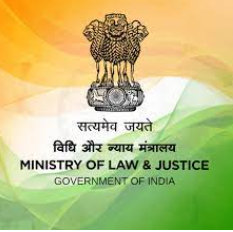Ministry of Law and Justice
The Ministry of Law and Justice is a key ministry of the Government of India, responsible for the administration of justice, legislative activities, and legal affairs in the country. The ministry is headed by the Union Minister of Law and Justice, who is assisted by two Ministers of State. The primary objective of the ministry is to maintain and improve the legal system of India, ensure the rule of law, and protect the rights of citizens.
History
The Ministry of Law and Justice has its origins in the pre-independence era. After India gained independence in 1947, the ministry was established as a separate entity to handle legal affairs and the administration of justice. Over the years, the ministry has undergone several changes and reorganizations to adapt to the evolving needs of the Indian legal system.
Organizational Structure
The Ministry of Law and Justice consists of three departments:
- Department of Legal Affairs: This department is responsible for providing legal advice to various ministries and departments of the Government of India. It also handles matters related to the Law Commission of India, the Attorney General of India, and the Solicitor General of India.
- Legislative Department: This department is responsible for drafting and reviewing legislation, as well as maintaining and updating the statutes of India. It also provides support to Parliament in its legislative functions.
- Department of Justice: This department is responsible for the administration of justice and the establishment and functioning of courts in India. It also oversees the appointment, transfer, and promotion of judges and other judicial officers.
Functions and Responsibilities
The Ministry of Law and Justice has several key functions and responsibilities, including:
- Drafting and reviewing legislation and bills.
- Providing legal advice to various ministries and departments of the Government of India.
- Overseeing the administration of justice and the establishment and functioning of courts.
- Appointing and managing judges and other judicial officers.
- Maintaining and updating the statutes of India.
- Representing the Government of India in legal matters before the Supreme Court and other courts.
- Promoting legal education and research in India.
- Coordinating with state governments on legal and judicial matters.
Major Initiatives and Reforms
The Ministry of Law and Justice has undertaken several initiatives and reforms to improve the legal system and ensure access to justice for all citizens. Some of the major initiatives include:
- National Mission for Justice Delivery and Legal Reforms: This mission aims to reduce pendency in courts, improve the quality of legal services, and enhance access to justice for marginalized and vulnerable sections of society.
- e-Courts Project: This project aims to digitize the Indian judiciary and provide online services to litigants and lawyers.
- Tele-Law: This initiative provides legal advice and consultation to marginalized communities through video conferencing.
- Nyaya Mitra: This scheme provides legal assistance to litigants who are unable to afford legal services.
- Fast Track Special Courts: These courts have been established to expedite the trial of cases related to sexual offenses against women and children.
Challenges and Way Forward
Despite the various initiatives and reforms undertaken by the Ministry of Law and Justice, the Indian legal system continues to face several challenges, such as:
- Pendency of cases in courts.
- Shortage of judges and judicial officers.
- Inadequate infrastructure and resources in courts.
- Delays in the appointment of judges.
- Limited access to justice for marginalized and vulnerable sections of society.
To address these challenges, the ministry needs to focus on several key areas, such as:
- Increasing the number of judges and judicial officers.
- Improving the infrastructure and resources in courts.
- Streamlining the process of appointing judges.
- Promoting alternative dispute resolution mechanisms.
- Enhancing access to justice for marginalized and vulnerable sections of society.
The Ministry of Law and Justice plays a crucial role in maintaining and improving the legal system of India. Through its various initiatives and reforms, the ministry has sought to address the challenges faced by the Indian judiciary and ensure access to justice for all citizens. However, much more needs to be done to strengthen the legal system and promote the rule of law in the country. As India continues to grow and evolve, the Ministry of Law and Justice will need to adapt and respond to the changing needs of society to ensure a fair, efficient, and accessible justice system for all.


